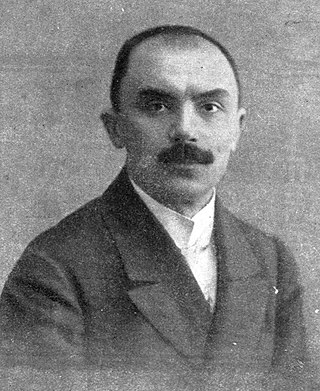Related Research Articles

Paulino (Paulin) Frydman was a Polish chess master.
Gösta Stoltz was a Swedish chess grandmaster.
Lajos Steiner was a Hungarian–born Australian chess master.
Kurt Paul Otto Joseph Richter was a German chess International Master (IM) and chess writer.

Hans Müller was an Austrian chess player, theoretician and author of books.
Paul (Pablo) Michel was a German–Argentine chess master.
Ludwig Engels was a German–Brazilian chess master.
Erik Andersen was a Danish chess master.

Carl Oscar Ahues was a German chess International Master.

Miklós (Nicolae) Bródy was a Hungarian–Romanian chess master.
Ludwig Roedl (Rödl) was a German chess master.
Kornél Havasi was a Jewish-Hungarian chess master.
Herbert Heinicke was a German chess master.
Lajos Asztalos was a Hungarian-Yugoslavian chess International Master, professor, and teacher of languages.
Árpád Vajda was a Hungarian chess master. He was also a Doctor of Law and State Science, and worked as chief of police in Budapest.

Maurice Raizman was a French chess master.
Pál Réthy was a Hungarian chess master.
Ștefan Erdélyi was a Hungarian–Romanian chess master.
Károly Sterk was a Hungarian chess master.
Mirko (Imre) Bröder, or Broeder, Broder, Breder (1911–1943) was a Hungarian–born Yugoslav chess master.
References
- ↑ "Altona 1932". Archived from the original on 2009-01-02. Retrieved 2008-04-23.
- ↑ "GER-ch 2nd Aachen 1934". Archived from the original on 2010-12-15. Retrieved 2010-12-15.
- ↑ "GER-ch 3rd Aachen 1935". Archived from the original on 2007-09-27. Retrieved 2008-02-15.
- ↑ "OlimpBase :: Unofficial Chess Olympiad, Munich 1936, information".